Worse air quality in the future?
1 August 2012
When our air is polluted, it is filled with gases that are harmful to us, such as nitrogen dioxide and sulphur dioxide. Also present are microscopic particles that, if inhaled into our lungs, can cause significant health problems. Edinburgh, in Scotland, used to be called Auld Reekie (Old Smokey) because of all the smoke from home fires used for cooking and warmth. This smoke is extremely dangerous to the human body, as it consists of tiny particles of burning wood and charcoal. In areas in Eastern Asia, like China, one of the most heavily populated places in the world, air pollution is already a big problem for human health. While researching in Italy, Andrea Pozzer found that air quality in the rest of the world may become much worse by the year 2050, unless governments take major action to reduce the quantities of pollutants emitted by industry, transportation and household use. Andrea studied the impact of man-made emissions on future air quality, assuming the same steady rise in pollution going into the atmosphere as there is now, without any cuts in emissions. In Andrea’s prediction, the average person anywhere in the world approximately 40 years from now will experience similar air pollution to that of today’s average East Asian citizen. As air pollution currently causes 1.3 million deaths per year worldwide, these results could help save lives in the future if they can convince governments and industries that air pollution is a major problem.Print version
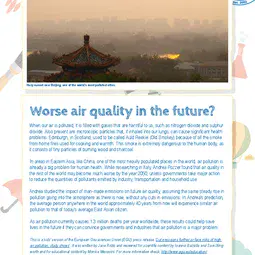
This is a kids' version of the EGU article: 'Worse air quality in the future?'. It was written by Jane Robb and reviewed for scientific content by Ioannis Baziotis and Sam Illingworth and for educational content by Monica Menesini.
Translations
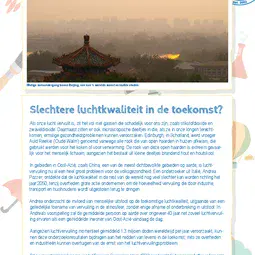
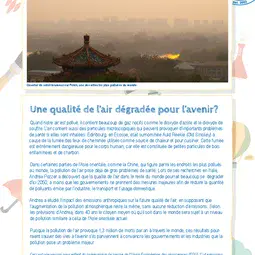
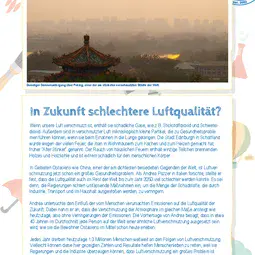
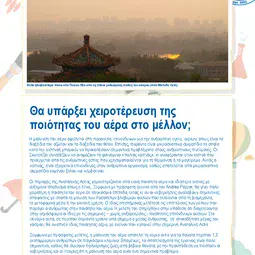
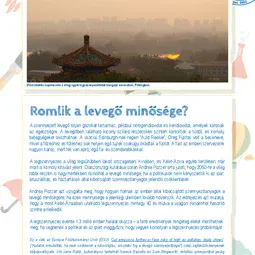
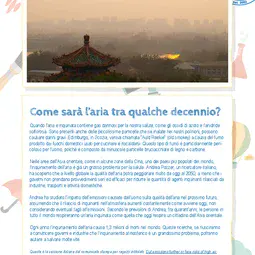
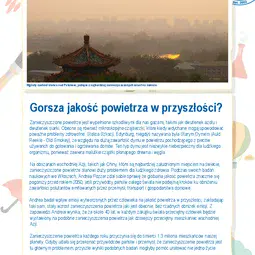
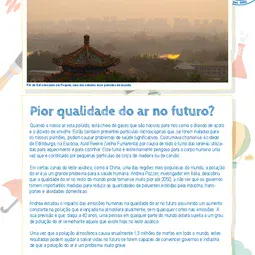
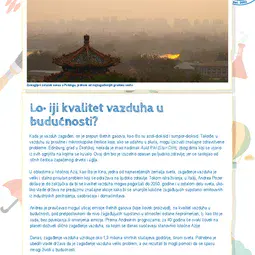
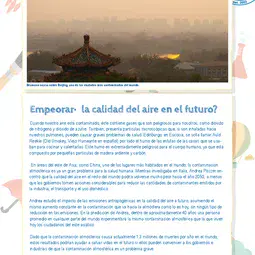
All English-language Planet Press releases are carefully edited, reviewed and proofed, by scientists, educators and EGU staff. Please note that once translated, Planet Press releases receive no further checks from EGU staff. For this reason, we cannot guarantee their accuracy, though we trust the quality of our voluntary translators and are grateful for their work.

